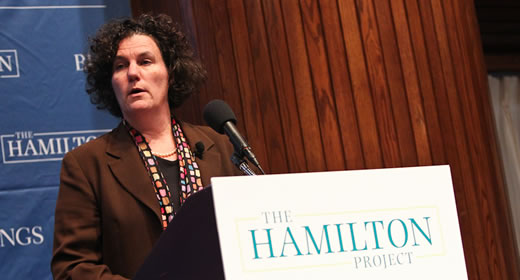
Susan Dynarski is quoted in James S. Murphy’s January 10 piece for The Atlantic entitled: “The gaps in New York’s free-college plan.” New York Governor Andrew Cuomo recently unveiled a plan, called the Excelsior Scholarship Program, that would cover public college tuition for New York residents making up to $125,000.
While the plan was applauded by many, Murphy says, education researchers quickly began to find flaws. For instance, federal and state aid already covers tuition for low-income students. Cuomo’s plan does nothing to help these students, who often face significant expenses beyond tuition.
In addition, Susan Dynarski worries that the plan could actively harm low-income and minority students by encouraging more competition from middle-income students. “Cutting prices across the board for 80 percent of the applicants is going to result in a surge in demand, and if they don’t expand capacity, the [state’s university systems] will have to ration in some way.” Because middle-income students tend to maintain higher GPAs and test scores, scholarship programs risk leaving low-income and minority students further behind.
These effects have already been seen in other states with similar programs. Dynarski's research was also featured in a January 5 article by Anya Kamenetz for NPR: "Is free college really free?" Kamenetz reports on a study Dynarski published that examines the impacts of Georgia’s HOPE Scholarship. Dynarski found that while Georgia’s program increased overall college attendance rates, it “widened the gap in college attendance between blacks and whites and between those from low- and high-income families.”
Susan Dynarski is a professor of public policy at the Ford School, professor of education at the School of Education, and professor of economics at the Department of Economics. She serves as co-director of the Ford School's Education Policy Initiative, which engages in rigorous, policy-relevant research to improve educational outcomes and reduce disparities.
